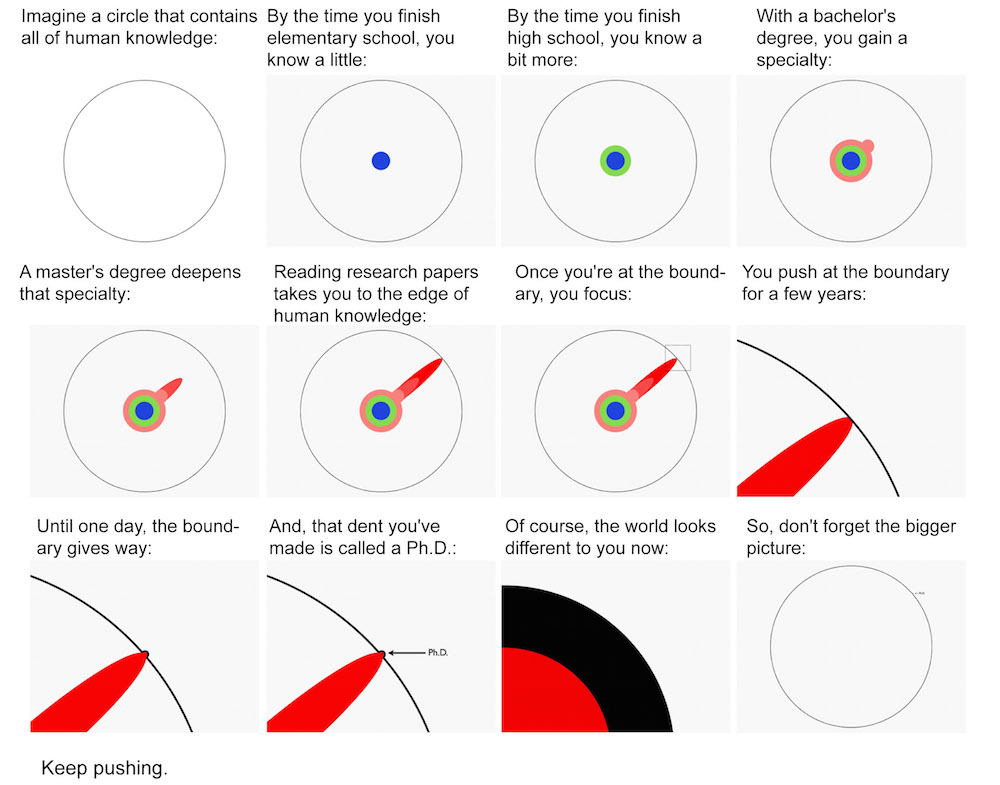What’s it like to study in a Master’s?
Posted by Giang Son | Mar 15, 2025 | 2 min read
Quick notes on how studying in a Master's differs from other levels
In my humble experience, and roughly speaking.
Master’s vs Bachelor’s vs High School
- As a high-schooler, knowledge was given to me straight by teachers and I was to take it as ground truth or facts.
- As an undergraduate, I had to learn in a more active manner. Besides merely consuming the course content, I was expected to think critically and ask questions around the subject (things like: what does this imply? is it good or bad?…). Most of the topics are well-researched, but they don’t always represent facts or truth, but rather different ways of thinking. I may gloss over lots of details, i.e I may only remember the conclusion and skip the explanation of how to get there.
- As a Master’s student, ideally, I should not come to learn but to bring some of my own perspectives into the discussion. At this point, I should at least be somewhat familiar with some of the subjects (either through learning or hands-on experience), enough to form my own viewpoints on the matter (*). The topics range from well-researched to recent advances, and I expect to be exposed to some open, unanswered problems. Also, I need to understand deeply and rigorously how some knowledge is derived, and what are the assumptions and nuances involved. As a bonus, I may also try to contribute some novel ideas.
- As a PhD student, well… I’ll tell you when I get there (if I ever go there at all).

Sauce: The illustrated guide to a Ph.D.
(*) which is why I think it is best to have some prior working experience before entering a Master’s. I believe you would gain a lot more compared to going in blind.
Formal Education vs Bootcamps/MOOCs
- Online courses and bootcamps are mostly beginner-friendly, and usually they are meant to provide quick and to-the-point practical training. They are like instant noodles: cheap and very useful, but also not very nutritious.
- In a formal education, the focus is on understanding the nature of the subject deeply and rigorously, as mentioned above. It’s like real food: good for you in the long run, but may be expensive.